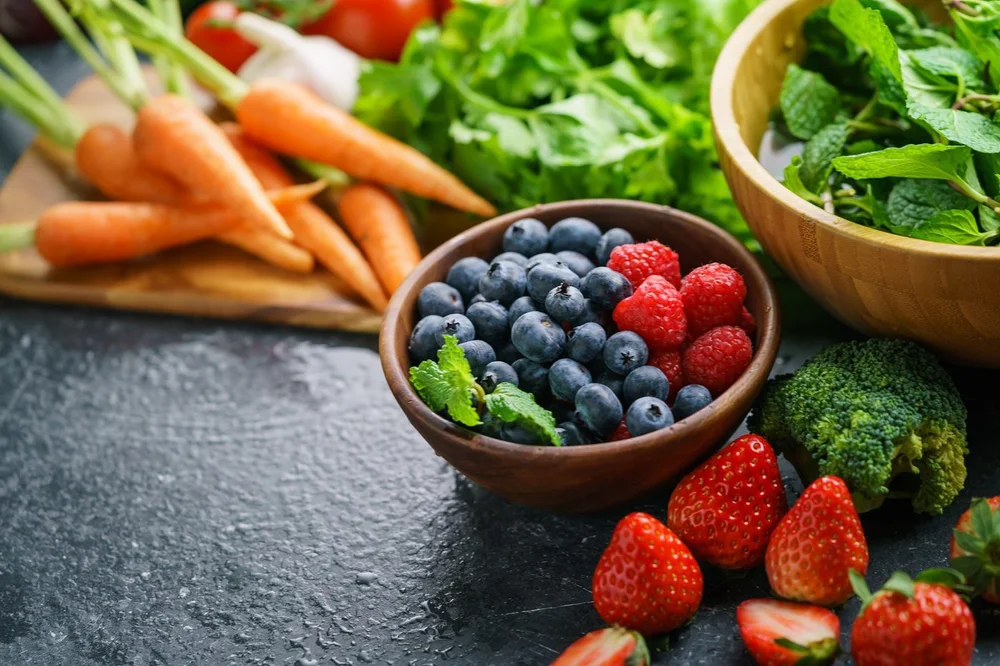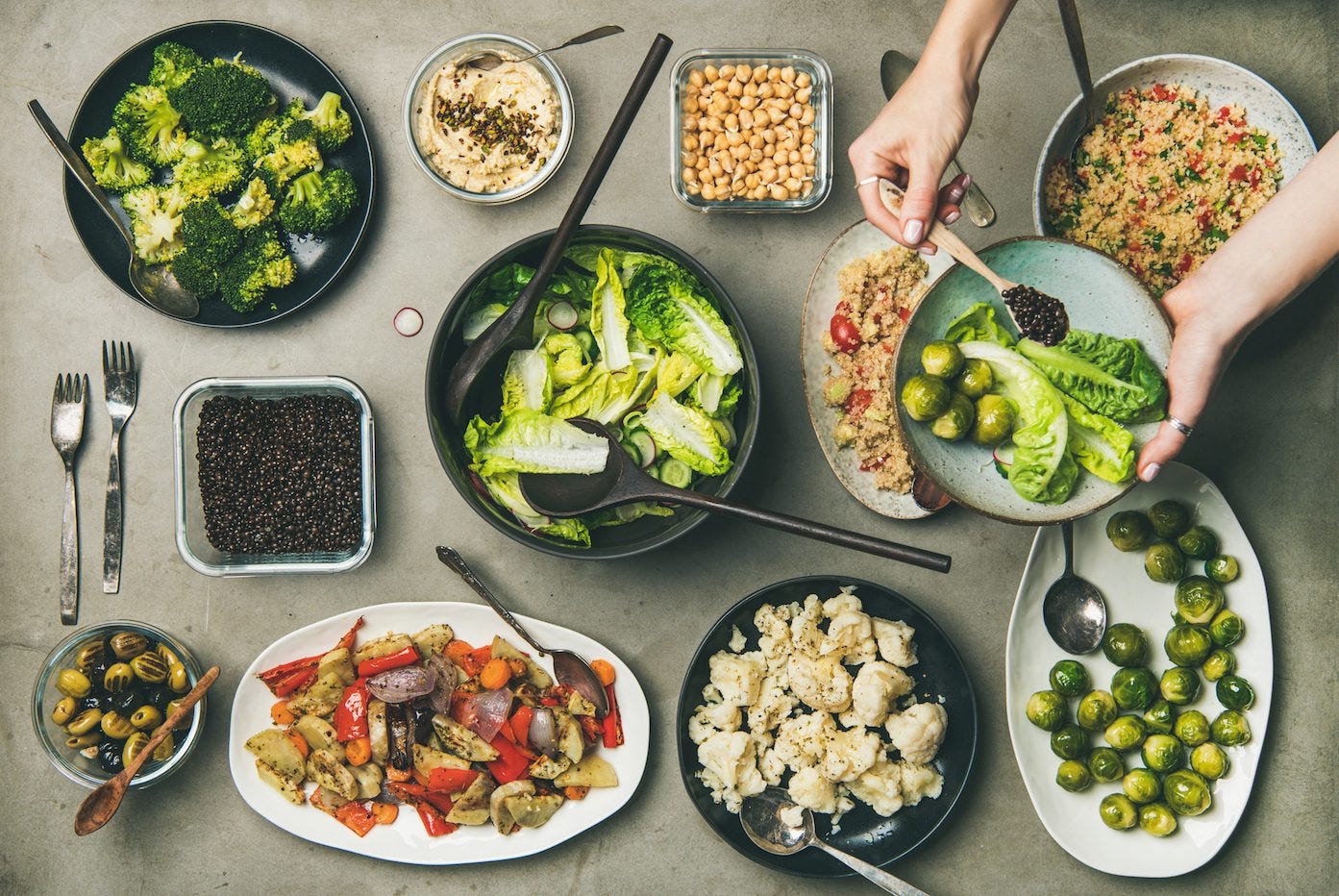How to Eat Seasonally: Eat These Delicious Summer Fruits and Vegetables!
Eating seasonally is a popular concept among the sustainability-minded. Followers of this eating style say that consuming in season produce isn’t only more nutritious, but is also better for the economy, environment, and society.
This practice isn’t merely relegated to trendy 20-something’s living on the coast carrying wicker baskets through the farmer’s market. There are many ways to make eating seasonally attainable for anyone.
There’s no question that eating plenty of summer fruits and vegetables is important for overall health. In this article, we’ll explore some of the potential benefits of eating these items seasonally.
What Does It Mean to Eat Seasonally?
During different months of the year, different crops are available for harvest. However, in developed countries such as the United States, we have the privilege of having access to foods that wouldn’t be available to us during certain times of the year if they weren’t imported.
Take strawberries for example. While they’re ready for harvest primarily in the summertime here in the U.S., you can still find them in the middle of winter at many grocery stores. That’s because they’re often grown in another part of the world and then shipped to us.
This increases the cost of the strawberries to the consumer, and some believe it imposes a greater burden on the environment. If it isn’t shipped from elsewhere, it may be produced using technological advancements that allow growers to extend the harvest season of that crop. These advancements may also negatively impact the environment.
Seasonal eaters seek to remedy this negative environmental impact by including foods that are locally and seasonally available in their diet. The goal is to reduce their carbon footprint by purchasing food that doesn’t have to travel far or require special agricultural technology to be produced out of season. By reducing the burden on the environment, it is thought that this way of eating is more sustainable.
While there are a few different ways to look at what it means to eat seasonally, we’ll focus on the benefits of eating both local and seasonal foods in this article. These foods may be found at your local farmer’s market, directly from a farmer, or at your grocery store.
Benefits of Eating Seasonally
Now that we’ve discussed what it means to eat seasonally, what are some of the benefits?
Seasonal Produce Is More Affordable
Because it doesn’t have to be grown in a specialized way or transported as far, local produce is cheaper to move from the farm to the store. These savings are often passed on to the consumer. This results in a more affordable product, meaning you can purchase and enjoy more fruits and veggies in your diet.
Many summer fruits and vegetables are more expensive than convenience foods, which makes them less appealing to buy. Combine that with the fact that they’re highly perishable, and you have the reason why many people have a low intake of fruits and veggies.
Buying seasonal produce may be a solution to this, as it’s less expensive. Keep in mind that you can always freeze fruits and veggies to prevent them from going bad before you’re able to use them. You can use frozen veggies in soups or frittatas, and frozen fruits in a smoothie or baked goods at a later time.
It May Be More Nutritious
While fruits and veggies are always a great source of vitamins and minerals, there’s some scientific evidence that suggests they may have a slight edge nutrient-wise over out of season produce.
One study shows broccoli harvested in season had twice as much vitamin C compared to broccoli harvested out of season. There aren’t many studies exploring this topic, but this one does suggest that certain crops are more nutritious when grown under the conditions they’re naturally designed to be produced under.
Some Find It Better Tasting
Although this is subjective, some people say in season produce has more flavor. This may be because seasonal produce is fresher and grown in more optimal conditions. Since many fruits and veggies continue to ripen after they’re picked, out of season produce is sometimes picked before it’s fully ripe.
The idea is that they’ll ripen over their long journey to your grocery store and arrive ready or almost ready to eat. However, this may also mean they’re picked before they can reach their peak nutrient content.
Whether or not local, in season produce tastes better to you will vary and there’s no way to guarantee it will taste better than out of season or frozen versions of the same item.
May Help Reduce Food Waste
As previously mentioned, getting food directly from your local farmer means it doesn’t have to be transported as far. This also reduces the chances that it’ll get damaged when being transferred from truck to truck.
Additionally, many grocery stores only place the most pristine food items out for purchase and dispose of the “ugly” or blemished items that are typically still safe to eat. This produces a lot of unnecessary food waste in the industry, which is another downside for the environmentally conscious. By selecting summer fruits and vegetables directly from the farmer, you can choose the produce yourself and help reduce waste.
How to Know What’s in Season
If you’re ready to start incorporating more locally grown, seasonal produce into your meal plan, here are some trustworthy resources to check out that will show you what’s available in your area.
You can also check out your local farmer’s market to see what local producers are offering at different times of the year. The farmer’s market is one of the best places to support your local farmers and ensure you’re getting the freshest produce.
If you can’t find a farmer’s market near you, some farmers have taken to social media to market their items or have websites you can search for online where they allow people to come and pick produce themselves directly from the plant.

Summer Fruits and Vegetables
Here are some foods that are in season during the summer across most of the contiguous U. S. Try looking for these when you take your next shopping trip!
- Zucchini
- Cucumber
- Arugula
- Corn
- Bell peppers
- Beets
- Apricots
- Strawberries
- Blackberries
- Lemons
- Limes
- Peaches
- Tomatoes
- Summer Squash
- Avocados
- Cherries
Final Thoughts
Eating local, seasonal produce is a popular and trendy lifestyle choice with some research to back up its claims. It’s more sustainable in that it helps reduce your carbon footprint, but it may not be feasible for everyone because it limits variety in your diet. Some say local produce is fresher and tastier, although this is subjective.
If you want to include local, in season items into your meal plan, start by researching what’s in season in your region of the country. Then, check out your local farmer’s market or grocery store to find those items.
If you decide to try this out, start small and simple. Rather than trying to make a drastic change overnight, select a few recipes that include what’s in season now and purchase those items. After a while, you may find that it saves you some money, helps you reduce waste, and lessens your carbon footprint while encouraging more fruit and vegetable intake in your diet.
At BrainMD, we’re dedicated to providing the highest purity nutrients to improve your physical health and overall well-being. For more information about our full list of brain healthy supplements, please visit us at BrainMD.
- Good vs. Bad Carbs: How to Create a Balanced Diet with Healthy Carbs! - January 27, 2022
- How to Make Homemade Salad Dressings + Recipes! - August 28, 2021
- How to Ditch Diet Culture & Improve Your Relationship with Food - August 25, 2021



